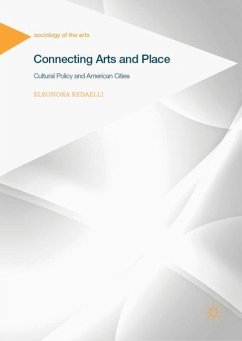
Introduction to International Arts Management

PAYBACK Punkte
25 °P sammeln!
This book explains and critically examines how arts managers from more than 40 countries across the world respond to the various phenomena of globalisation, digitalisation and migration. It also analyses the manner in which cultural institutions become more international in nature. Real-life case studies and experiences from numerous practitioners as well as an international comparison of those specific challenges and opportunities illuminate how practicing in international and transcultural contexts is now inevitable. This book presents the basic concepts, theories and terminology required fo...
This book explains and critically examines how arts managers from more than 40 countries across the world respond to the various phenomena of globalisation, digitalisation and migration. It also analyses the manner in which cultural institutions become more international in nature. Real-life case studies and experiences from numerous practitioners as well as an international comparison of those specific challenges and opportunities illuminate how practicing in international and transcultural contexts is now inevitable. This book presents the basic concepts, theories and terminology required for this kind of work in addition to providing an overview of the daily tasks and challenges involved. It will be of interest to practicing and aspiring arts managers who wish to develop a further understanding of the complex way in which the field is developing.














